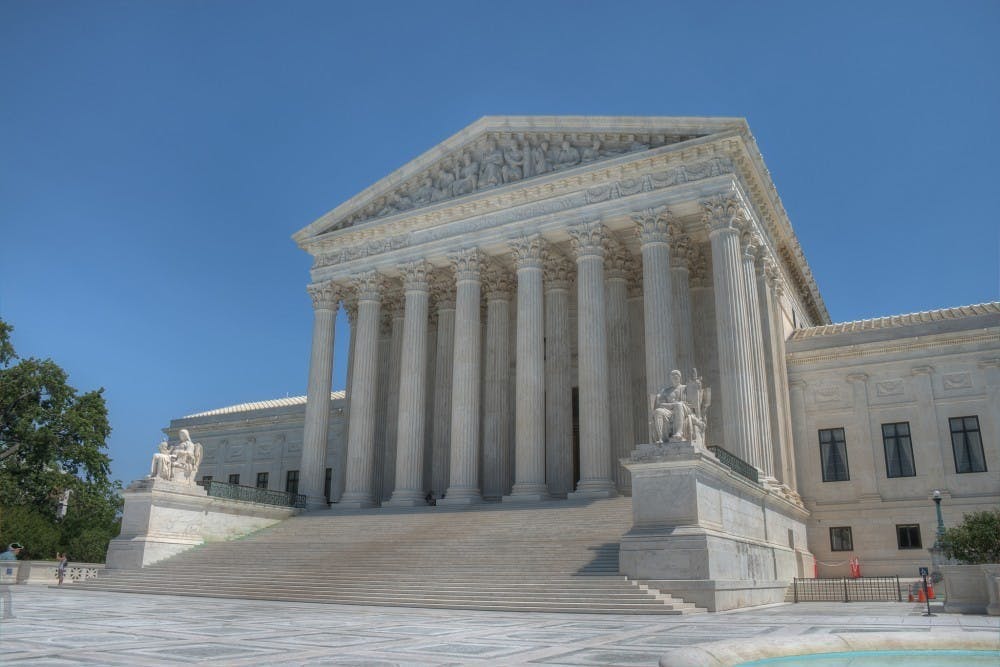In Federalist Paper no. 78, Alexander Hamilton writes, "Liberty can have nothing to fear from the judiciary alone, but would have every thing to fear from its union with either of the other departments.” Given the increasingly politicized nature of the Supreme Court nomination process over time, the judicial branch has never adequately fulfilled Hamilton’s vision of neutrality. But you can’t blame a man for trying. Today, his efforts are facing their gravest challenge since 1937, as several politicians advocate for the resurrection of court-packing.
As American politics has grown more vehemently partisan over time, the Supreme Court has followed suit. In 2017, I contended that Mitch McConnell’s invocation of the nuclear option to instate now-Justice Neil Gorsuch was the final nail in the coffin of judiciary independence. Over two years later, that grim prediction holds truer than ever. Any way you slice it, the nomination and confirmation of Justice Brett Kavanaugh was an ugly process — one that persists to this day.
And while judicial activism is by no means a new phenomenon, the progressives' heightened reliance on the Supreme Court to act as a lawmaking body in the absence of legislative consensus produces an undesired situation in which nominations are seen as politically decisive.
Rather than formulating a plan to rollback this extreme partisanship, several Democratic presidential candidates — including Beto O’Rourke, Elizabeth Warren, Pete Buttigieg and Kamala Harris — are positioning to wield the court to their advantage. By packing the courts pending a victorious 2020 election, the Democrats could secure an enduring legacy of progressivism within the National government. Although this course of action isn’t unconstitutional — there is no constitutional provision laying out the number of justices that must sit on the bench — it’s exceedingly inadvisable.
The scheme didn’t work in 1937 when President Franklin D. Roosevelt sought to protect his New Deal from ideological conservatives in the court. Republicans and Democrats alike saw the addition of six new executive-friendly justices for what it was — a thinly-veiled attempt to converge the will of the judiciary with that of the presidency. In a report to the Senate, the Judiciary Committee wrote, “It is a measure which should be so emphatically rejected that its parallel will never again be presented to the free representatives of the free people of America.” God willing, politicians and judges of all partisan leanings will have the same courage when met with this parallel situation in the near-future.
The most immediate consequences of failing to condemn court-packing will be political. The Democrats’ flirtation with expanding the Supreme Court relies on their victory in the 2020 Presidential and Congressional elections. Actively advocating for court-packing under a Republican President and Senate is an arrogant strategy that lends the possibility for their political adversaries to add justices while in power.
Assuming that Democrats take the presidency and win a majority in the Senate necessary to pass a bill to increase the size of the Supreme Court, court-packing would steep the judiciary in revenge politics. Inevitably, the measure would initiate an unstoppable chain of unintended consequences all aimed at regaining partisan control of the Supreme Court. Justice Ruth Bader Ginsburg pointed to the danger of cascading effects in an interview with NPR, stating “it would be that — one side saying, ‘When we're in power, we're going to enlarge the number of judges, so we would have more people who would vote the way we want them to.’”
After all, the idea of political reciprocity through the courts is already upon us — look no further than New York Times Opinion Columnist Jamelle Bouie's piece, “Mad About Kavanaugh and Gorsuch? The Best Way to Get Even Is to Pack the Court.” At least this editorial admits the partisan bias undergirding the Democrats’ plan. Most Democrats champion court packing as an alleged measure to “depoliticize” the Supreme Court.
The next wave of fallout is institutional. The number of Supreme Court justices is not an issue of constitutionality, but precedence. Likewise, the idea of judicial review is not an inherent function of the Supreme Court in Article III, but is nonetheless valuable. Nine — an odd number — ensures decisive rulings as well as fairly regular turnover. Given that the Supreme Court reviews half as many cases today as it did 30 years ago, the addition of justices has no explanation beyond ideology.
For better or worse, precedents apply to everyone.The acquisition of short-term political goals is not worth sacrificing an intricate and time-tested system of checks and balances. When it comes to the judicial branch, two wrongs don’t make a right. If Democrats cross the line into court-packing, the Supreme Court will be deeply and irrevocably damaged.
Charlotte Lawson is an Opinion Columnist for The Cavalier Daily. She can be reached at opinion@cavalierdaily.com.







